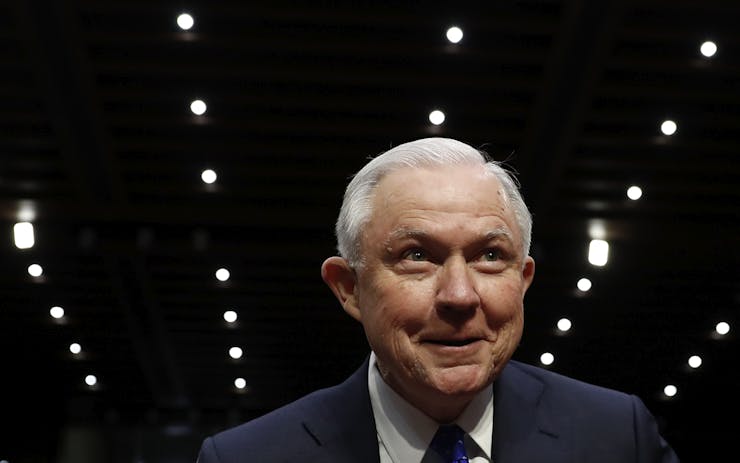Could the US ever legalize cannabis federally? The simple answer is yes, but the reality is far more complex. The reason laws and regulations around cannabis are so complicated leads back to the federal government – more specifically, the Controlled Substances Act, Title II of the Comprehensive Drug Abuse Prevention and Control Act of 1970.
A Little History About the Controlled Substances Act
The Controlled Substances Act (CSA) was signed into law by President Richard Nixon on October 27, 1970. The act divides all known medicines, substances, or drugs into various categories based on their potential for abuse, medical applications and known benefits, and safety considerations. The Drug Enforcement Agency is tasked with enforcing the inventory management, records, and security of controlled substances, and individuals who order, handle, store, and distribute must be registered with the DEA.
The CSA has been amended many times over the years. For example, it’s been changed to abide by the Convention on Psychotropic Substances, to include anabolic steroids at Schedule III in 1990, and to help divert methamphetamine trafficking in 1993.
Scheduling Controlled Substances
The tiers of drugs range from Schedule V – considered the least dangerous and therefore, requiring the least amount of regulations – all the way up to Schedule I, a tier that is considered the most dangerous, with the strictest regulations and “no medical benefit,” which includes LSD, heroin, and cannabis.
In order to be categorized as a Schedule I substance, the drug must meet three criteria:
- The drug has a high potential for abuse
- The drug has no currently accepted medical use in treatment in the United States
- There is a lack of accepted safety for use of the drug under medical supervision
Drugs may be rescheduled at a lower level or removed entirely from the list of Controlled Substances, but the process is rigorous and the criteria is incredibly restrictive.
Petitions to Reschedule Cannabis
The first petition to reschedule cannabis from Schedule I to Schedule II was filed in 1972 by the National Organization for the Reform of Marijuana Laws (NORML), but the petition was not given a hearing for fourteen years. In 1986, the petition was finally considered by the DEA, but the debate continued for years.
It was during this trial that DEA Administrative Law Judge Francis L. Young concluded that marijuana is “one of the safest therapeutically active substances. By any measure of rational analysis marijuana can be safely used within a supervised routine of medical care… The overwhelming preponderance of the evidence in this record establishes that marijuana has a currently accepted medical use in treatment in the United States for nausea and vomiting resulting from chemotherapy treatments in some cancer patients. To conclude otherwise, on this record, would be unreasonable, arbitrary and capricious.”
Despite Young’s conclusion, the DEA Administrator at the time, John Lawn ultimately rejected the petition 22 years after it was first filed.
In 1995, High Times and former NORML Director Jon Gettman filed another rescheduling petition, using studies of the endocannabinoid system conducted by the National Institute of Mental Health between 1988 and 1994. The DEA officially denied the petition on April 18, 2001, a decision upheld by the US Court of Appeals in May of 2002.
Shop highly rated dispensaries near you
Showing you dispensaries nearAnother petition was filed by Americans for Safe Access and the Coalition for Rescheduling Cannabis in 2002, but was ultimately denied in 2011. Americans for Safe Access filed an appeal in January 2012, which led to a hearing in October, before another rejection on January 22, 2013.
Who Holds the Power?
There are only a few select entities with the power to make such a big change at a federal level. Cannabis may be rescheduled through Congressional legislation; an example of this is the CARERS Act, repeatedly proposed by Senator Cory Booker (D-NJ), to no avail.
- Cannabis may also be rescheduled at the executive level by the President of the United States.
- The Controlled Substances Act also provides a process for which the US Attorney General may reschedule cannabis legislatively.
- The Drug Enforcement Administration evaluates all petitions to reschedule cannabis.
- The Department of Health and Human Services, however, also carry as great deal of power in the rescheduling decision process.
The DEA must first accept the petition, which is no small feat, as illustrated by past attempts to reschedule cannabis. The Health and Human Services Secretary must then submit a “scientific and medical evaluation, and his recommendations, as to whether such drug or other substance should be so controlled or removed as a controlled substance.” The HHS Secretary has the power to reschedule cannabis in their own right, if they so choose.
In order to classify a drug or consider whether a substance should be rescheduled or decontrolled, the determining factors are as follows:
- Its actual or relative potential for abuse.
- Scientific evidence of its pharmacological effect, if known.
- The state of current scientific knowledge regarding the drug or other substance.
- Its history and current pattern of abuse.
- The scope, duration, and significance of abuse.
- What, if any, risk there is to the public health.
- Its psychic or physiological dependence liability.
- Whether the substance is an immediate precursor of a substance already controlled.
The President, the Attorney General, the Secretary of Health and Human Services, and Congress all have the power to reschedule cannabis.
With each new Congressional bill proposed, with each new politician that recognizes the therapeutic value of cannabis, with each new state that embraces medical cannabis, with each new voice speaking out in favor of cannabis, the US grows ever closer to legalization.





